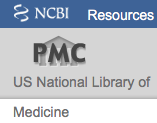Propolis: A Smart Supplement for an Intracanal Medicament.
Baranwal R, Duggi V, Avinash A, Dubey A, Pagaria S, Munot H.
Abstract
INTRODUCTION:
One of the most important factors for successful endodontic therapy is root canal cleaning. The difficulty involved in eliminating microorganisms, as well as their residual presence, warrants the use of root canal dressings after bio-mechanical preparation.
AIM:
The aim of the study was to compare the diffusion ability between nonalcoholic calcium hydroxide-propolis paste, calcium hydroxide-saline paste, and calcium hydroxide-propylene glycol paste.
MATERIALS AND METHODS:
For this proposed study, single-rooted extracted permanent teeth were randomly divided into three groups to fill the canals: group I: Calcium hydroxide-propylene glycol paste, group II: Calcium hydroxide-saline paste, and group III: Calcium hydroxide-propolis paste. After complete filing of the root canal, the pH values of the solutions in the flasks are measured at an interval of 3, 24, 72, 168 hours.
RESULTS:
After 168-hour interval, it was noticed that the mean pH obtained by calcium hydroxide-propolis paste was 10.54 (± 0.38), which was greater than calcium hydroxide-propylene glycol paste 9.70 (± 0.45) and calcium hydroxide-saline paste 9.16 (± 0.30) consecutively.
CONCLUSION:
The nonalcoholic calcium hydroxide-propolis paste used during the study was able to diffuse through the dentinal tubules. Thus, it can be used as a vehicle for calcium hydroxide.How to cite this article: Baranwal R, Duggi V, Avinash A, Dubey A, Pagaria S, Munot H. Propolis: A Smart Supplement for an Intracanal Medicament. Int J Clin Pediatr Dent 2017; 10(4):324-329.
* THESE STATEMENTS HAVE NOT BEEN EVALUATED BY THE FOOD AND DRUG ADMINISTRATION. THIS IS NOT INTENDED TO DIAGNOSE, TREAT CURE OR PREVENT ANY DISEASE.
